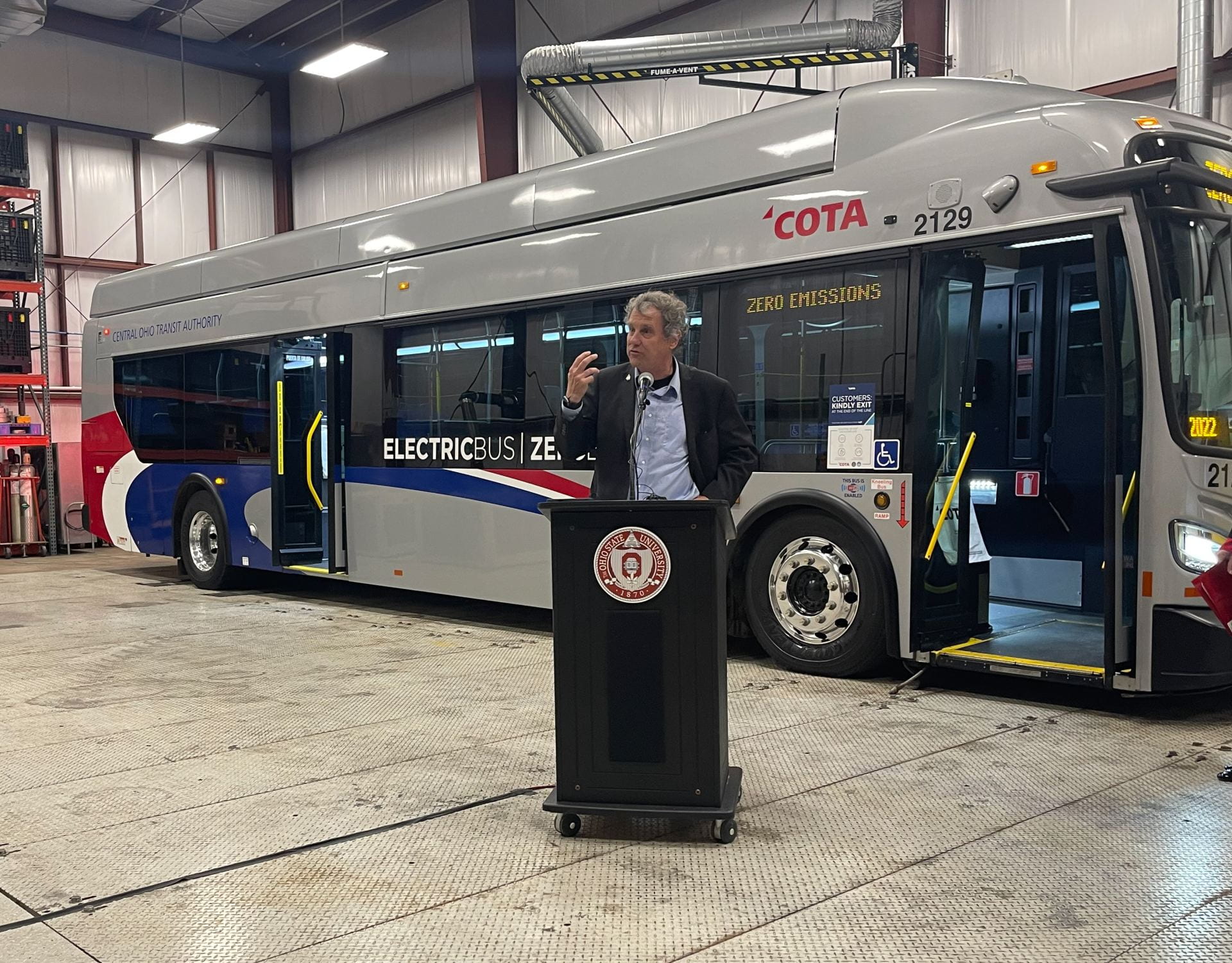
Ohio senator Sherrod Brown announced a $26.5 million funding agreement, along with President Kristina Johnson, to support zero and low-emission public transit. Credit: Jasmyne Smith | Lantern Reporter
Ohio Senator Sherrod Brown (D-OH) met with University President Kristina M. Johnson Friday to announce a $26.5 million funding agreement in support of zero- and low-emission public transportation testing at the Center for Automotive Research.
The investment, coming from the U.S. Department of Transportation’s Federal Transit Administration, will support the construction of a new testing facility on Ohio State’s West Campus through fiscal year 2026. According to CAR, the facility will primarily research the improvement of batteries, energy storage and electric motors to reduce the overall fuel emission of buses.
Johnson said Friday when introducing the agreement that moving cargo and people over long distances are “the largest sources of emissions that we have in the U.S.”
“It’s really important that we reduce the carbon content if we’re going to have the kind of future that we want for everybody here,” Johnson said.
Funding for the investment was made possible through the Bipartisan Infrastructure Investment and Jobs Act, which Brown helped to write and pass in 2021. According to Brown’s website, the bill is aimed at repairing infrastructure in Ohio and creating well-paying jobs without raising taxes on working families.
Brown, chairman of the U.S. Committee on Banking, Housing, and Urban Affairs, said he looks to Columbus and the Central Ohio Transit Authority to inspire his work.
“Our committee is responsible for public transit all over this great country, and I take much of my direction from what I see at COTA and what I see at Ohio State making a huge difference in moving this country forward,” Brown said.
According to a 2010 report from the FTA, electric hybrid buses produce 15-40 percent fewer carbon dioxide emissions than standard diesel buses.
“If we can get these transit buses to go green, every single one of these transit buses puts about 3.4 million pounds of CO2 into the atmosphere that we can mitigate,” Johnson said.
According to CAR, research conducted at the lab will contribute to COTA and the rest of the transit industry, helping create the cleanest vehicles possible and select the best technology for its customers.
The investment will also help support internships at CAR, as well as programs aimed at involving children of all ages in STEM. Johnson said she looks forward to how these programs will impact future generations.
“You’ve got outreach programs, K-12, and that gets kids excited. They get a little bit of confidence,” Johnson said. “They can be an engineer, they can be in this industry. We need that next generation in order to be dedicated and to do the kind of work that’s going to get us to a clean energy future.”
Brown said he looks forward to seeing CAR’s future impact on climate change.
“I’m thrilled that with your idealism, particularly you who are young — here, most of you — coupled with your practical knowledge, are going to move this country forward in a much more progressive, solid way in terms of addressing climate change,” Brown said.


